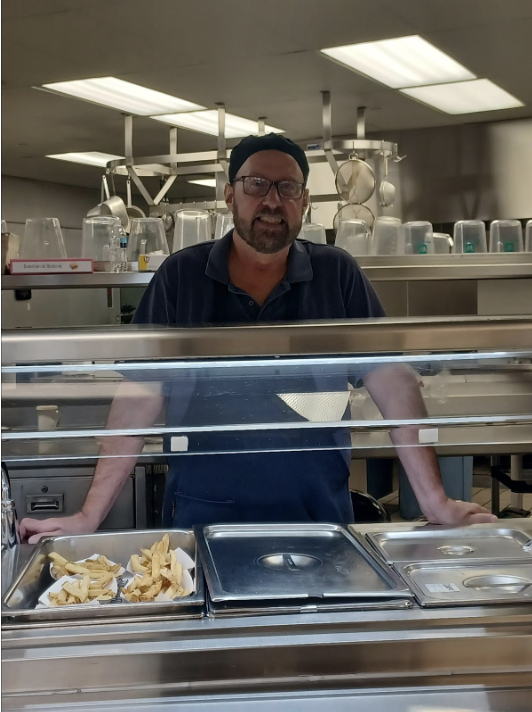For weeks, inquiry over singer Taylor Swift’s travels in her private jet has been rising to surface on social media. Several people have been pointing out the excessive amount of carbon dioxide released into the ozone with every flight.
As Taylor Swift continues to soar to new heights in her career, she’s also facing increasing scrutiny over the environmental impact of her private jet travels. Swift’s frequent flights have sparked a debate over the responsibility of celebrities in the fight against climate change.
In 2023, Taylor Swift took at least 100+ flights on her private jet, allegedly resulting in 8,300 metric tonnes that year alone (1,184 times an average person’s footprint), as noted in Andrea Carlo’s article in euronews.green. This made her one of the top polluters, along with celebrities like Kim Kardashian and Drake, for utilizing their private jets for short flights. Public responses have been mixed with many people criticizing Swift for her frequent private jet usage, suggesting it showed a disregard for the environmental impact of flying private. Retired Naperville Central High School science teacher Gary Slaybaugh understands the causes behind airplanes’ negative impact on the environment. “Airplanes burn fossil fuels, which release carbon dioxide as well as nitrous oxide into the environment. Both gasses have strong warming effects on the atmosphere. Certain gasses act like the glass in a greenhouse, trapping the sun’s heat and stopping it from leaking back into outer space.”
Numerous celebrities opt for private flights instead of commercial flights because it offers unparalleled comfort and added privacy to their lives while traveling. However, according to BITLUX, a private jet charter company, private jets emit an estimated 899,000 metric tonnes of carbon dioxide into the atmosphere. In addition to this, a typical private jet can emit carbon at a rate of 4.9 kilograms per mile. Private jets produce 5 to 14 times more pollution per passenger than commercial planes. Flying privately leads to approximately 45 times more gas emissions than a commercial flight on the same route. Slaybaugh explains that all living organisms’ health and well-being will be affected with increased private flight travel as it contributes to overall global warming. Therefore, there are growing concerns regarding the increased travel.
In response to mounting concerns over the environmental impact of private jet travel, there’s a growing call for celebrities like Taylor Swift to take proactive steps towards reducing their carbon footprint. Michael Sheldrick, a writer for Forbes, explains how Swift made a noteworthy move by purchasing double the required carbon credits to offset emissions from her record-breaking tour. This approach could catalyze efforts to combat deforestation and biodiversity loss as well as scale up carbon removal technologies.
Carbon offsetting has emerged as a popular strategy for individuals and businesses seeking to mitigate the environmental impact of their activities, including private jet travel. By purchasing carbon credits equivalent to the emissions produced from their flights, celebrities like Taylor Swift can effectively neutralize the carbon footprint associated with their traveling lifestyles. These credits are typically invested in projects that reduce greenhouse gas emissions. Carbon offsetting can play a valuable role in funding climate-positive initiatives and raising awareness about the need for sustainable resources in air travel. However, some critics argue that it should not be viewed as a sole solution to reducing emissions.
While carbon offsetting provides a means for individuals and businesses to address the environmental impact of their activities, it also underlines the importance of exploring alternative modes of transportation to reduce emissions. Hannah Ritchie from Our World in Data explains that transportation accounts for around one-quarter of global carbon dioxide emissions from energy. Over short to medium distances, walking or cycling are nearly always the easiest and most effective ways for a low footprint. However, what if the distance is too far that walking, cycling or taking the train is not the most logical? Ritchie writes that driving an electric vehicle is a good mode of private transport since it emits less than a petrol car or diesel car. Nonetheless, this doesn’t include emissions from the manufacturing of the car.
As public figures with significant influence, celebrities hold a unique position in shaping societal attitudes and trends, including those related to environmental issues like climate change. Their actions and choices are often closely observed by the public, making them important figures for promoting sustainable action. Many celebrities have used their platforms to advocate for environmental conservation, support renewable energy initiatives and raise funds for climate-related causes. However, addressing climate change requires collective efforts from various divisions, including governments, businesses and communities worldwide. Collaboration and systemic changes are essential for effectively reducing the impacts of climate change and transitioning to a more sustainable future.
Taylor Swift’s frequent private jet travels have sparked a significant debate regarding the environmental responsibility of celebrities in combating climate change. Because of the mounting concerns over the excessive carbon emissions associated with private jet travel, there is a growing call for proactive measures to reduce the carbon footprint of such activities. Carbon offsetting has emerged as a popular strategy to neutralize emissions, along with the accompanying efforts to explore alternative modes of transportation and systemic changes in various areas. Celebrities, as influential public figures, play a crucial role in shaping societal trends and promoting sustainable actions. Celebrity activism is one of the most influential ways to reach the public and help combat climate change. Using their influence and organizing environmental funding are proactive ways that celebrities are advocating for change.


















